Text
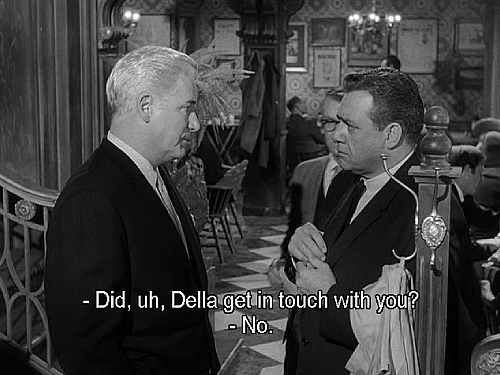
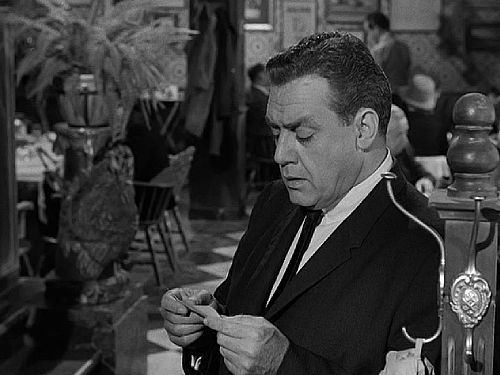
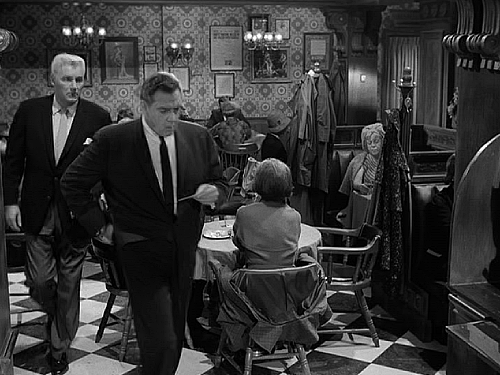
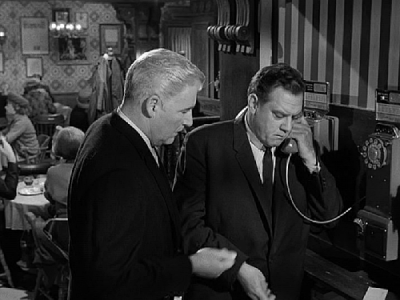
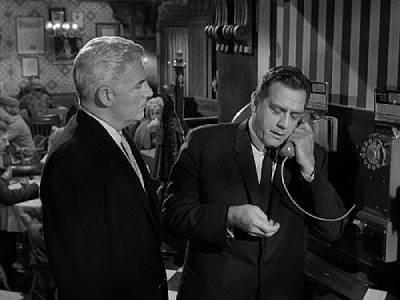
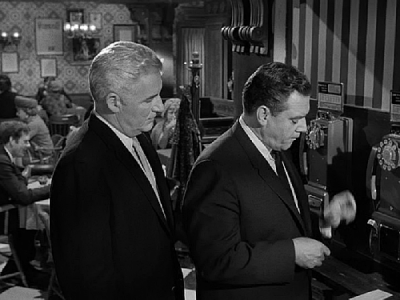
THEY LOVE HER YOUR HONOR
#&. perry visage#&. paul visage#STOP I'M !!!!!!#giggling and kicking my feet about this#they love her so much!! they're so cute about it like della <3 forgot to get gas again <3#i love that this is clearly a long standing thing between them too#paul saying 'if i know della she's probably run out of gas for the third time this month'#three times in a month!#Della’s busy! she's preoccupied with many things and running a mile a minute! getting gas just slips her mind!#now I'm thinking about paul filling up della's gas when he comes back to the office after some investigation#just so she gets home <3#i also love that della calls her boyfriends immediately bc she knows they'll come to help!#and paul giving perry change 🥺 paul loves taking care of his partners with little gestures like always having phone money for them <3#them <3
14 notes
·
View notes
Text
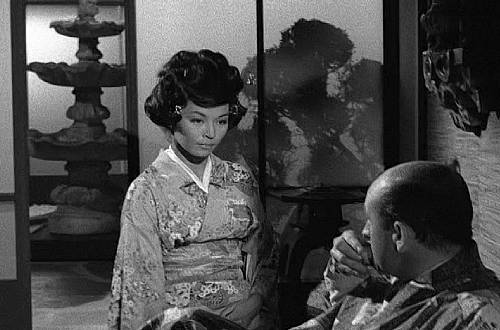
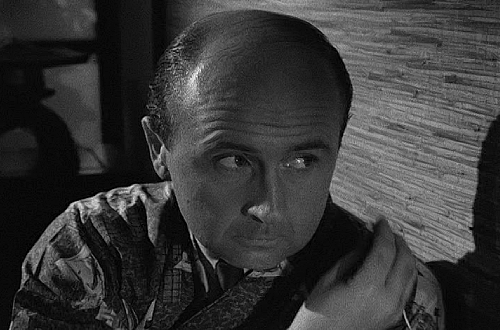
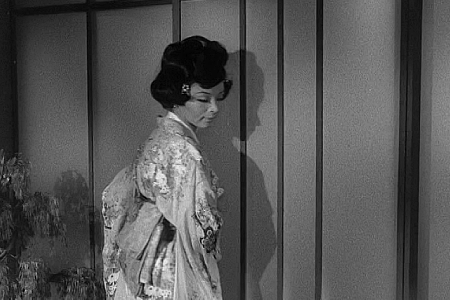
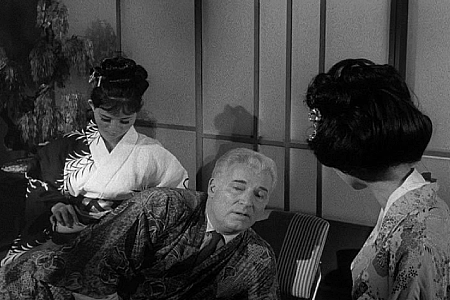
Reposting the gifs of Paul at the Japanese restaurant because it reminds me so much of the wonderful meta that @caseopened wrote recently about how much Paul incorporates himself into the community and how he consistently shows empathy in his work.
In this scene, we first see the woman in the floral kimono go to the room of the undercover investigator, Mr. Lehigh, that Paul & Perry's client had hired without telling them. The woman is distant and clearly unimpressed with this man, and he largely dismisses her. We then see he's eavesdrops on Mr. Tachikawa using a bug.
Contrast that with the very next scene where the woman walks into Paul's room. She looks visibly more relaxed and open with Paul, and we immediately see why - Paul has clearly been charming these two waitresses and has earned their trust, maybe has even worked with them previously.
We know Paul often uses the latest technologies and we've actually seen him use recording devices in the past, but here in this situation, he instead chooses to work with the staff at this restaurant (staff that I'm sure are used to being ignored or mistreated by their clients, especially the white men) and have them be his "bugs". This approach gives him something that Lehigh can't get from his spying, which is the additional context that Mr. Tachikawa has been spotted at the same place with multiple women.
Paul is the best private investigator in LA because he knows that people are the best source of information, especially people who are often disregarded, like workers and staff!
#&. paul visage#THIS!!!!!! Everything about this!!!!!#this is such a clear example of paul's character and heart; he actively reaches out to the community#paul knows just about everyone bc he knows that building relationships with the community is the most important#and he builds these relationships with empathy and compassion and care#and he brings his help and his line of work to the community in accessible ways!#this example is just one of many where paul puts people first bc THAT is what matters#and it especially matters to him; he takes such care and responsbility to helping people and making sure no one or nothing remains unfound#throughout the series paul time and again goes to various communities with this same level of care and commitment and relationship building#and the fact that his work is juxtaposed here with another detective who completely dismisses her#is an excellent testament to everything he does#op i love your meta and gifs here so much thank you for making this! 💜#our eminent paul drake the best detective in LA 💜#in a world where people (and other detectives like that guy in the first scene) blatently ignore and dismiss marginalized communities#paul drake opens up his doors to connect with them and help them#and these people become his friends and help him in return.. which makes the paul drake detective agency so much bigger#it's a whole community of people#anyway i just love paul drake so much
6 notes
·
View notes
Text
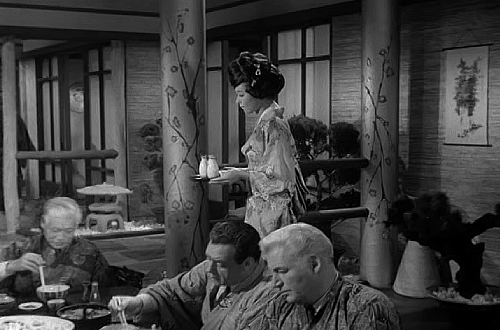
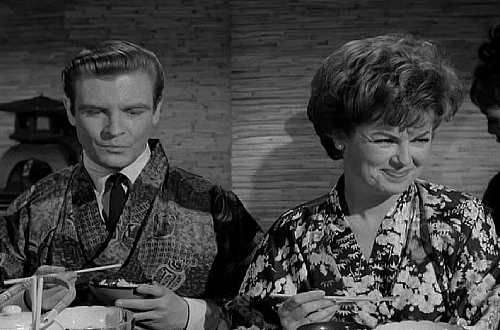
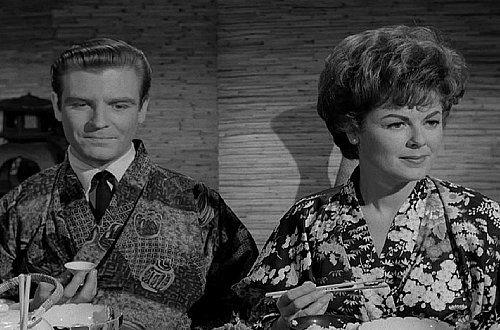
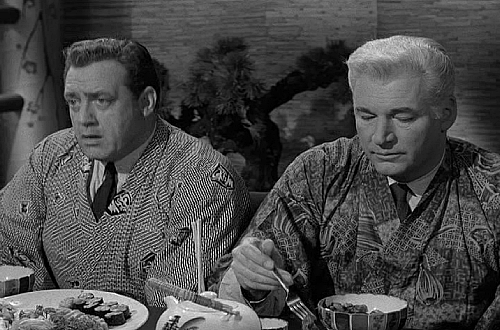
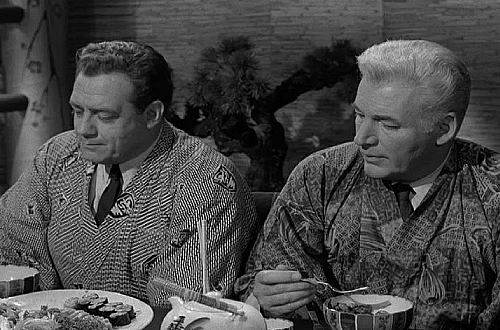
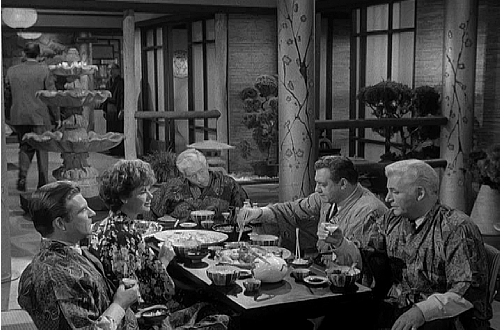
STOP THEY ARE SO CUTE IM GOING TO DIE
#&. paul visage#&. della visage#&. perry visage#them <3#it's these soft moments that mean the most- how they make a space for each other together and also share their love with others#and build a little community 💜#the inherent love displayed in sitting down and sharing meals together#i just love them so much 🥺
13 notes
·
View notes
Text
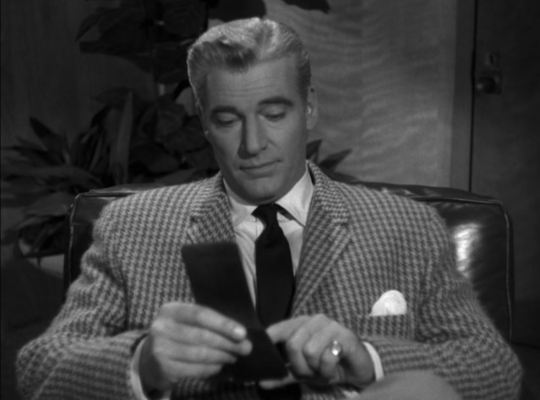
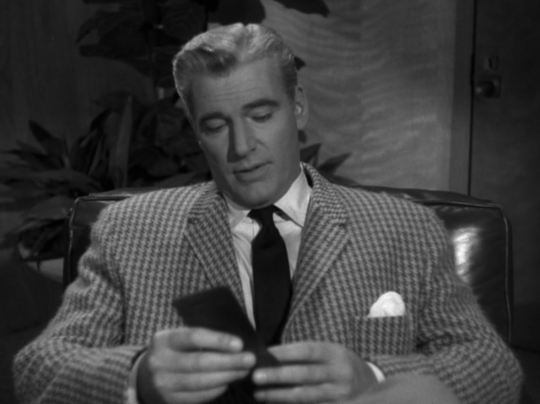
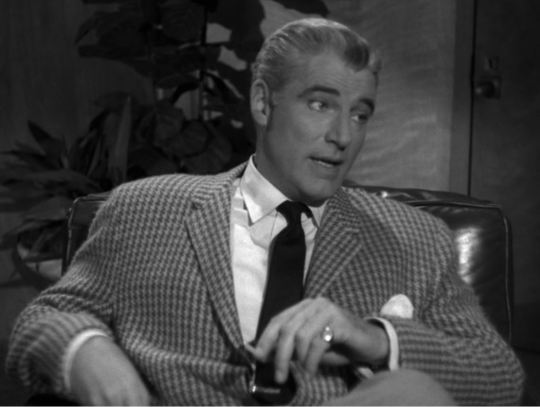
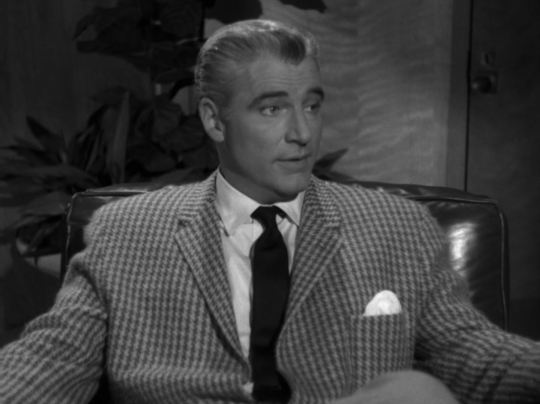
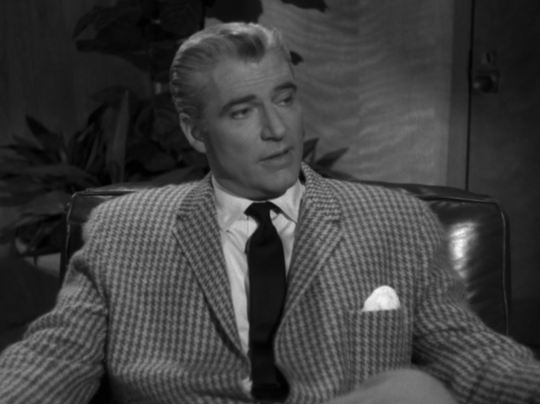
PAUL: It is now three hours and twenty minutes since the discovery of Melvin Slater's body. What do you know so far?
PERRY: Nothing. Except what Eva Martell told me over the phone.
PAUL: Well, she called the police. Tragg and his boys arrived at 4:10. At five after five, Tragg took your clients downtown for questioning. Do you know anything about the murder itself?
PERRY: No.
PAUL: Slater was shot in the middle of his forehead with a small-caliber gun. Probably a .32. Well, uh, what's the matter?
PERRY: Well, Aunt Agnes said she carried a gun. Probably small-bore. Go on.
PAUL: You wanted to know who was behind that tailing job, and I had a perfect opportunity of finding out.
PERRY: Who was it?
PAUL: I noticed that the Interstate Detective boys, the ones tailing your clients, were feeding information back to the home office from the Lodestar via phone. Then one of them took off. I figured he was heading back to the office for only one reason.
PERRY: To report to the client in person?
PAUL: Right. So I covered.
PERRY: Okay, Paul, who was it?
PAUL: Grant Willoughby Reynolds.
PERRY: Reynolds? Helen Reynolds' husband?
PAUL: That's right.
PERRY: Where is he now?
PAUL: Still in the apartment. Belvedere Towers.
PERRY: All right, let's go.
I love this bit in TCOT Borrowed Brunette because we actually get a time stamp on how long it took Paul to find out all this information (and how he went about obtaining the information). In three hours and twenty minutes, Paul went to the scene of the crime, clocked when Tragg arrived and when he took Perry's clients in for questioning, found out how Slater was murdered, produced a strong guess on the murder weapon, discovered who was tailing Perry's clients (The Interstate Detective Agency), followed them, figured out they were feeding information to the home office via phone, then followed the one agent on a hunch that he was returning to the office to report to his client (Paul's hunch was right!), and found out the identity of the Interstate Detective Agency's client.
This is all pretty standard work for Paul, and we know he's INCREDIBLY good at his job, but having that time stamp helps put a framework in for us, the viewers, to understand just how much information Paul gathers when he's out on the job in a set amount of time. And it's damn impressive!
And speaking of time, Paul and Perry proceed to pay a visit to Grant Reynolds after this scene. They're already well into the evening hours at this point, and they're still on the case.
One more thing: I love the way the trio shares information with each other. Della might not have any dialogue in this scene, but she is absolutely there listening to Paul, taking notes, and pausing to look up at Paul and smile. I love that Paul asks if Perry knows anything first (he didn't at this point) before he starts rattling off what he's gathered. Perry, of course, has little interjections to further the conversation. And even though Paul is being quite serious in his delivery of information, there is something in his tone of voice that makes my heart swell because it is extremely clear how dedicated, thorough, and passionate Paul is about his work. This is where he shines, and it comes through so much.
#&. paul headcanons#&. paul visage#paul drake#william hopper#perry mason#first an episode that gives us time stamps on paul drake working around the clock#now an episode that gives us how long it took paul to find out all this information?#and Paul is wearing my personal favorite sports coat of his <3#it must be my birthday (it isn't) but it sure feels like it!
4 notes
·
View notes
Text
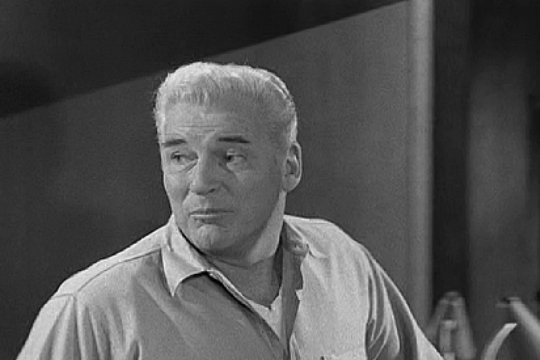
8 notes
·
View notes
Text
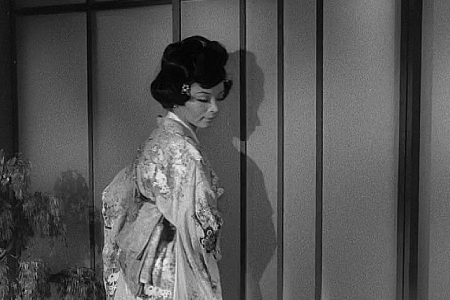
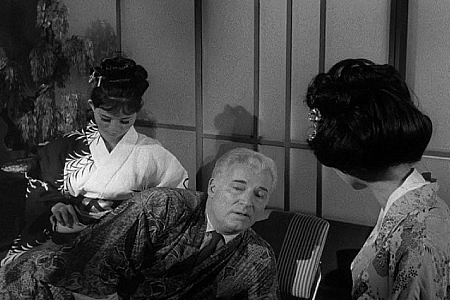
Literally any other actor/character and I would be rolling my eyes at this scene but William Hopper is just SO CHARMING that it actually kind of works???
#&. paul visage#THAT SMILE IN THE SECOND GIF I AM LOSING IT#what a sweetheart!#and yes same op it does seem like they know each other#very much like they're some of paul's friends and community member contacts/non operatives who help out the paul drake detective agency!
7 notes
·
View notes
Text
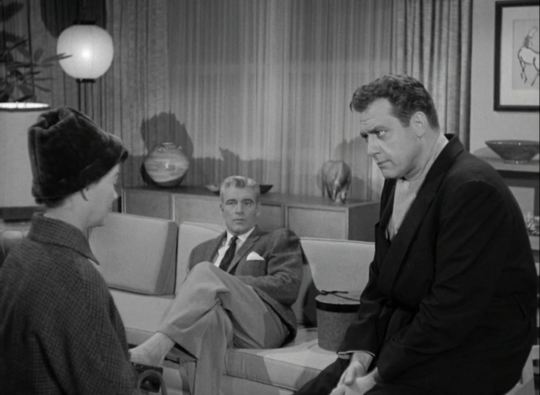
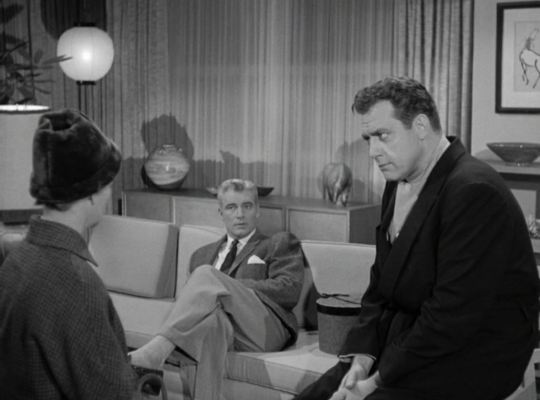
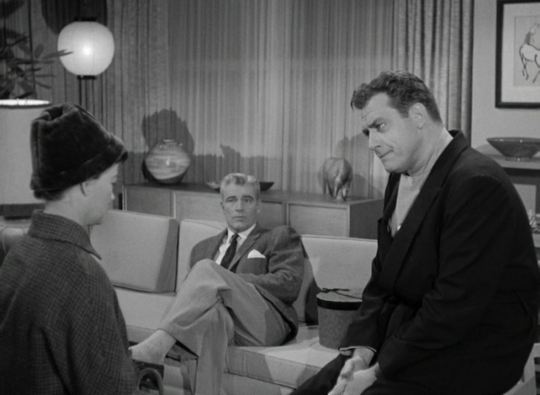
PERRY: I'd like to understand why you didn't call us and tell us what you'd done.
PAUL: I asked her that.
MRS. WERNER: I can explain it. I did go for a walk. A long walk. And then I--- then I went to Hugo's apartment. I rang the bell, and there was no answer. I thought he was out. And then just-- just before leaving, I turned the doorknob. The door was open, and I went in.
PERRY: Go on, Mrs. Werner.
MRS. WERNER: He was dead. Th-there was a burned smell in the room, and there was a gun on the floor.
PERRY: What time was this?
MRS. WERNER: I don't know. I don't know what time it was.
PAUL: What about the gun? Did you touch it?
MRS. WERNER: No, I... I'm-- I'm afraid of guns.
PERRY: Then did you leave?
MRS. WERNER: Yes.
Another great example of the ways in which Paul and Perry work with each other when asking questions of their client. One of the things right off the bat is Perry's inclusion of the word "us" when asking Mrs. Werner why she didn't call them. This is common place for the trio, and you can find many examples of this inclusiveness, as they sincerely do operate together. One is not better than the other; one cannot do it alone. And so, they become a package deal. And with that said, it is worthy to note that clients are not always exclusively Perry's clients. They're also Paul's. Most of the time, these clients need more aid than just legal counsel; they also require detective work. In the show, clients' bills will therefore have fees from the Paul Drake Detective Agency as well as Perry's legal services.
In this instance, Mrs. Werner actually started off as Paul's client. She originally sought legal advice surrounding her missing husband from Perry, and Perry's legal advice was: 'You need a detective, and I'm going to call the Paul Drake Detective Agency.'
Only when her husband got murdered does Perry step in with additional legal counsel. This line of questioning as seen above is the first time Paul and Perry are both questioning her after the murder.
And it is exceedingly interesting to me that their body language mirrors their different approaches to questioning.
Paul is seated across from Mrs. Werner, giving her space. He's physically the biggest person in the room, but he's made himself appear less threatening by folding into himself and sitting very casually. His gaze is intense and questioning, but there's indications that he's taking in every word and absorbing every bit of Mrs. Werner's reactions and responses (i.e. the tilt of his head to show he's listening/absorbing, and the way his gaze sheds a bit of that intensity even though his facial expression remains unreadable/relaxed.). Even though Paul is sitting directly across from Mrs. Werner, the angle of the shot implies the ever essential Detective Working in the Background Aura. This is where Paul shines, and he is absolutely clocking everything in this moment.
Perry, on the other hand, is in Mrs. Werner's personal space. He's taking on a much more direct approach, and with that intense gaze of his, it can get a bit intimidating pretty quickly! And while he's sitting casually, his choice to sit up on the edge of a table makes him physically taller to the point where he's looming over Mrs. Werner. He does try to balance that intensity out by using placating hands, though. His gaze is locked on Mrs. Werner, but in a different way from Paul's gaze. Perry is almost locked on her mouth, extremely focused on her words as if he's drawing out every single word from her. Paul is watching/absorbing all of her reactions to get a clear picture.
PERRY: You closed the apartment door when you left?
MRS. WERNER: Yes.
PAUL: Completely closed it?
MRS. WERNER: Yes.
PERRY: Then you decided to run away. How much evidence do you think you left in your husband's apartment last night?
MRS. WERNER: But I didn't leave any.
PAUL: Did you touch anything? The doorknob, the table, any of the half a dozen other objects in the room?
MRS. WERNER: But how would they know that they're my fingerprints?
PERRY: Mrs. Werner, you're the wife of a murdered man. Don't you realize the police are going to investigate you, whether you're here in Chicago or at the North Pole?
MRS. WERNER: I didn't know. I-- What shall I do. Mr. Mason?
PERRY: Did you kill your husband?
MRS. WERNER: [Shakes her head]
PERRY: I don't want a shake of the head. I want you to look at me and say it out loud.
MRS. WERNER: [Starts to cry] No. No, no, no, no, I didn't.
This part here is all about the way in which they ask their questions. I love it so much because they are truly tag teaming off each other. Perry is focused on the general questions. He wants to know: Did you close the door? How much evidence did you leave?
And for each general question Perry asks, Paul asks clarifying questions. Paul is asking for the key pieces of evidence that Perry is going to need to start working up a defense. And it makes sense that Paul would ask these questions as a detective. His mind is wired to find evidence, whereas Perry's mind is wired to sort through law to create a defense.
So, when Perry asks if Mrs. Werner closed the door, Paul clarifies and asks if she completely closed it. Why? Because when Paul and Perry arrived to the scene of the murder, the door was left ajar.
When Perry asks how much evidence she left, Mrs. Werner takes that literally. She is thinking about leaving things like, say, a scarf or a set of keys. That's why she says she didn't leave anything. But Paul clarifies Perry's question and asks if she left evidence behind in the form of touching objects. Mrs. Werner didn't even consider touching things to be evidence until Paul asked. We can gather this from her follow up question: how would they know they were her fingerprints?
And this goes back to Paul putting his clients first with such a high level of empathy and individualized care when it comes to detective work (see more here, here, and here). Paul is keenly aware that his clients might not know all the legal jargon or what criminal investigations use as proof. That's why he takes time to reach out to his clients and make their work accessible to them.
Finally, we also see exactly how Perry works when he asks if Mrs. Werner killed her husband. He's not coddling her here whatsoever. In fact, he gets a bit strict when she only answers his question with a shake of his head. Perry does this frequently with his clients, or rather prospective clients. Right before he accepts the case, Perry pushes hard into them. He's not doing it with malicious intent; rather he is looking for their admission to determine whether or not he believes them to be innocent. In many cases, the clients Perry takes have the odds heavily stacked against them. Perry acknowledges this in his line of questioning--- Mrs. Werner is suspect number one right now. And while he gets pretty intense here, he's looking for that sincere 'no, I didn't do it,' which, at the end of the day, is precisely what Perry needs to determine whether or not he takes a case.
#&. paul headcanons#&. perry headcanons#&. paul visage#&. perry visage#paul drake#william hopper#perry mason#raymond burr
8 notes
·
View notes
Text
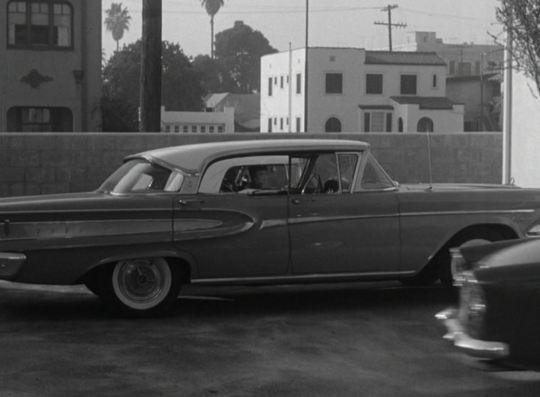
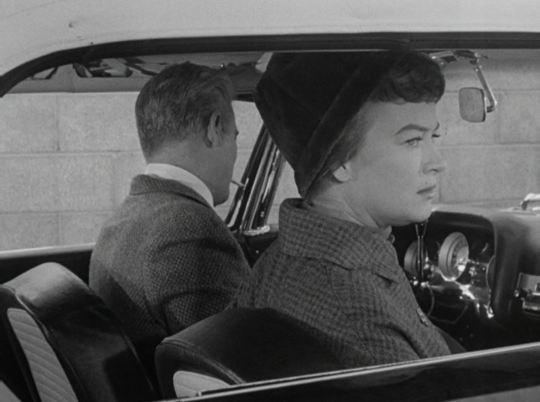
Add another car to Paul's rides. He's driving a 1958 Edsel Citation here. These cars cost $3,535 in 1958, which is the equivalent of $38,203.93 today.
By season two, Paul is seen driving his Thunderbird (both a 1957 and 1958), his 1957 Corvette, and this 1958 Edsel Citation. He'll get newer makes of the first two cars as the seasons progress, but the Edsel Citation only came out for a 1958 release and didn't have additional makes because of low sales. They released this car during the recession when there was a significant drop in car sales overall, and the public had mixed reactions to the look of the car. There were just under 10,000 Edsel Citations ever made!
And I find it really interesting that Paul chose to get this car for two main reasons. First, the Edsel Citation was generally viewed by the public to have a radical, showy, and flashy design, which fits so well with Paul creating this very suave and flashy front. The look of the car created strong opinions on either end, and I think it fits Paul well to go for the more expressive looks. He's not afraid of bold style!
Second, the Edsel Citation was manufactured to remedy Ford's lack of mid-sized car options. They made this car with a primary focus on creating more room, seating, and interior comfort.
And why would Paul be interested in a mid-size car option? Well, I see Paul getting a car like this is to ensure plenty of space for driving Paul Jr. around!
I can easily see Paul driving this car to take Paul Jr. to school, out fishing or swimming, or running errands and appointments with him. The Citation has that family car space that Paul needs. Plus, the Citation is Paul's only car that has four doors at this point. I can just see a wee Paul Jr. peering out the back seat window with bouncy blonde curls blowing in the breeze-- all while piecing together the clues his dad just gave him to figure out their destination for the day (because yes, Paul absolutely plays that game with Junior when he's a kid).
And perhaps the reason why he's driving the Citation in the scene pictured above is precisely because he was driving Paul Jr. somewhere just before going into work that day. I personally headcanon Paul Jr. would be in elementary school at this point in the timeline, so to me, Paul was dropping Paul Jr. off at school and then just drove directly to work from there.
And so, Paul's motor head self has a nice collection of cars. He's got his suave luxury car with his Thunderbird, his edgy sports car with his Corvette, and his mid-size family car with his Citation.
#&. paul headcanons#&. paul's cars#paul drake#william hopper#perry mason#&. paul jr headcanons#paul drake jr#paul drake jr.
1 note
·
View note
Text
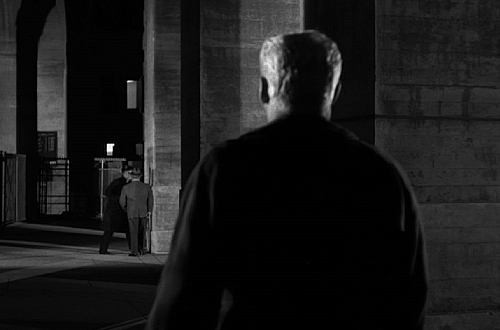
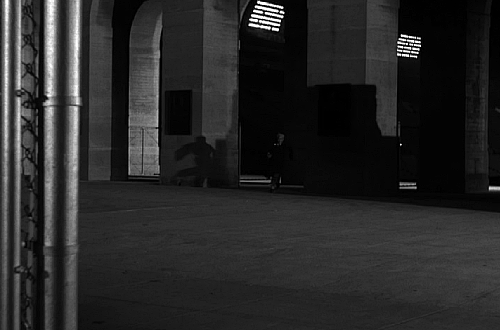
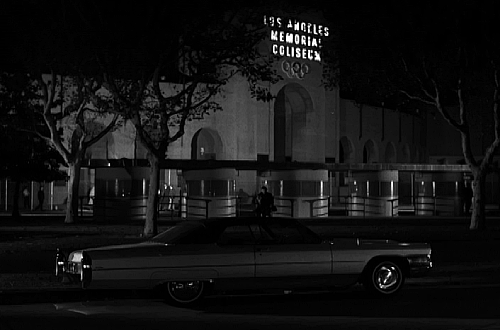
honestly pretty impressive this guy manages to outrun Paul "Gazelle Legs" Drake
8 notes
·
View notes
Text
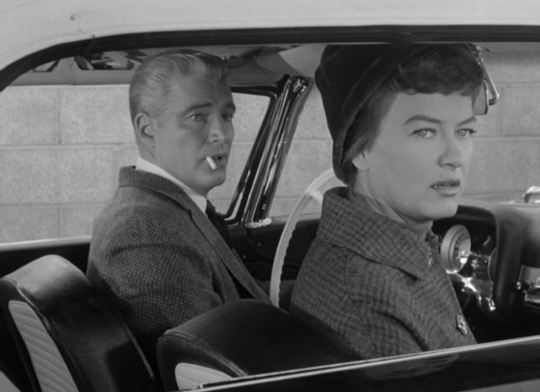
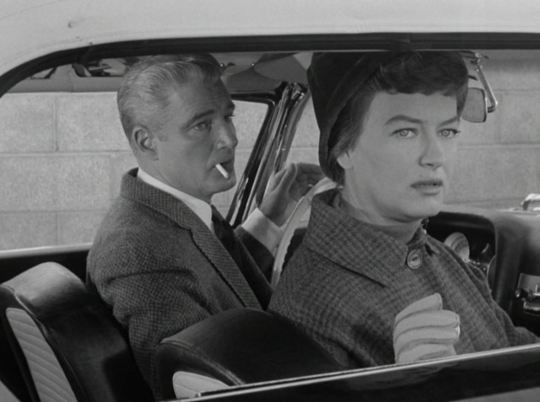
I've spoken before about Paul's public facing role with the community here and here. In those posts, I talk about how we see Paul consult with his clients. He provides updates on casework in calm, non-judgemental, and empathetic ways, especially when investigative work can produce intel that the client was hoping not to hear. I also discuss how much Paul works on building relationships with the community to the point where he's not just managing trained operatives around the world, but also developing lasting relationships with community members who are not trained as detectives. Canonically, he works with people from all walks of life, and that focus on relationship building with community members is just another huge contributing factor to the success of the Paul Drake Detective Agency.
And here in this scene, we see another glimpse of Paul's relationship building with the community.
Prior to this scene, Paul has conducted investigative work to find Mrs. Werner's (as seen in the photos above) missing husband. His findings match Mrs. Werner's husband to a man named Hans Breel. This man has assumed a new identity, and Paul meets with Mrs. Werner to explain this. Then he takes her with him to a stakeout so she can positively identify this man as her husband.
And what this shows us is that Paul does not just do his investigative work and slap down some copies of images and reports for his clients before wiping his hands of the case. He keeps his clients continually updated, he involves them when it's necessary (such as identification purposes, as seen here), and he puts in thorough, committed work to his job.... all for his clients.
It's especially noteworthy when you consider the level of personalized care and diligent work that Paul gives to all of his cases on top of everything else that Paul does. He's not just a detective investigating his own cases. He's the head of the agency, which means he has to handle the numerous tasks and dealings of running a business, payroll, hiring and training (which canonically includes Paul going to different states to train his operatives in other locations!), keeping tabs on his operatives as they report on other cases (and just keeping tabs on them in general for safety check-ins), cross-checking and confirming his operatives' findings on other cases, keeping communication tabs open with contacts, community members, or other sources that provide updates on reports and inquiries, signing off on expense reports, providing (and making) spy tech, etc.
To put this into even greater perspective, this specific episode (TCOT Shattered Dream) gave us a timeline on Paul's workday. His workday was an all-nighter and continued into the next morning. He worked his normal day shift, which included this scene here. Then, he continued working into the night. Paul was still working with Perry in his office at 9:30 PM when they received a phone call. They both responded to the phone call, reaching Breel's apartment at 10:00 PM where they found Breel dead.
Then, Paul left to track down Mrs. Werner, who attempted to run away after her husband was murdered (she had happened upon Breel's apartment first before Paul and Perry got there). At this point, and surprisingly so, Perry went home to bed! Paul came back to Perry's apartment with Mrs. Werner at 3:45 AM, and Perry was all cozy in his PJs and robe! They both interviewed Mrs. Werner to determine what happened, and then Paul immediately took that information and went out to find a suspect. He brought that suspect into Perry's office where they both interviewed him (by this point, it's morning and back into the regular work day). Only after the interview did Paul say he was going home to go to bed (finally). He didn't. Perry gave him something else to look into. And this goes back to the concept of how Paul is always on when it comes to his investigative work. It's a testament to the level of commitment he has to his profession as much as it is a testament to the good work and individualized care he brings to his clients.
4 notes
·
View notes
Text
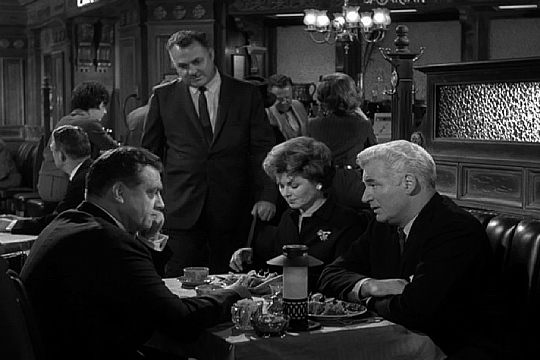
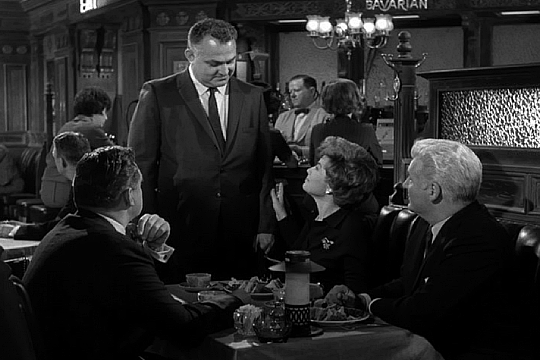
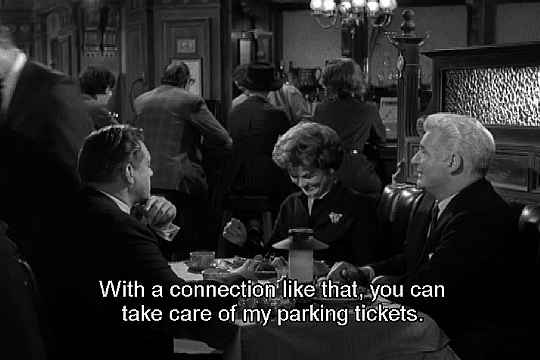
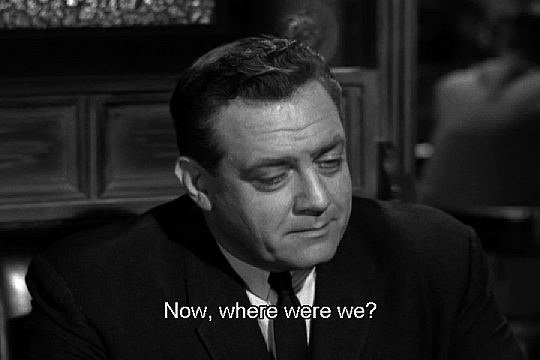
they are SO CUTE I CANT DEAL
#&. paul visage#&. della visage#&. perry visage#them <3#i love moments like this with the trio 🥺#out to eat on a date while also chatting away about a case... so very them <3#also della's smile!! she smiles and my heart melts!! she's so gorgeous 🥺#also paul please how many parking tickets do you have#i love how paul will say he's got the dope on a case too!#his voice and word phrasing is so interesting and fun to write/explore i think!
14 notes
·
View notes
Text
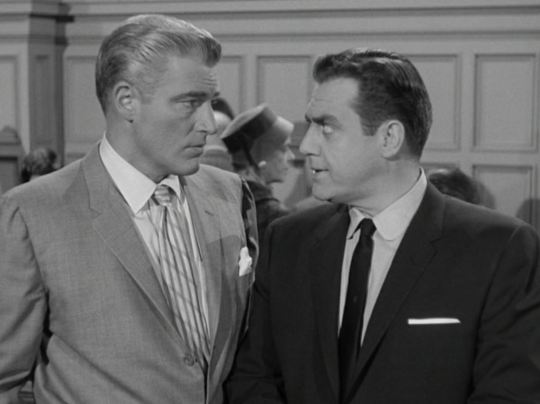
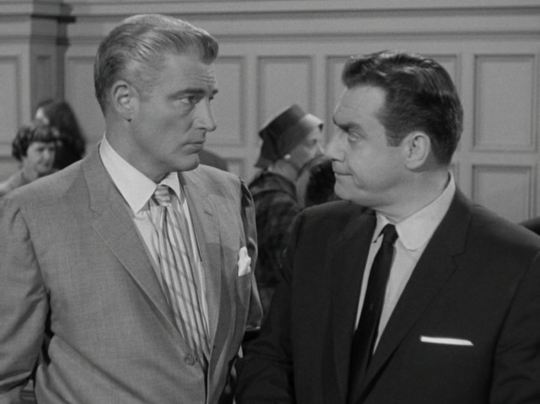
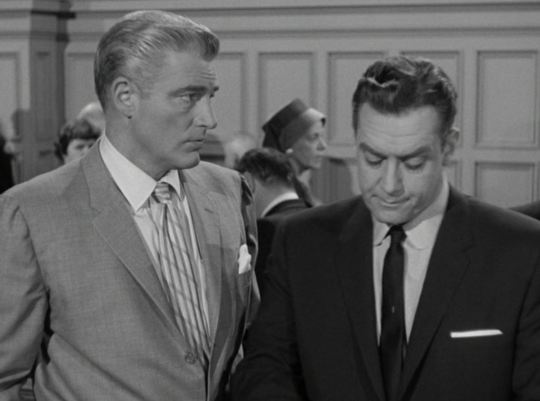
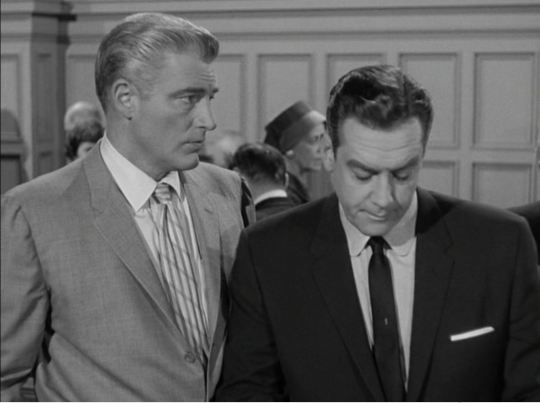
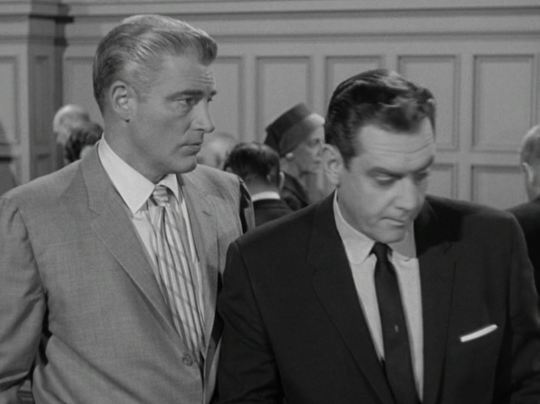
PERRY: [Speaking to Paul] Burger prepared this case in a hurry, but he built it like a battleship. We're in the process of being sunk.
I rewatched TCOT Shattered Dream last night, and this scene gives us a real glimpse of what it's like when Paul shuts down and dissociates (read more here and here, as well as in my fic, Gone Fishing). It's only a few moments, but it tells us quite a bit. At this point in the case, Hamilton Burger has the upper hand. When the court breaks for the noon recess, Perry just casually makes this comment to Paul.
But what we can't see here is that when Perry says the above lines, Paul immediately grits his teeth and tension gathers along his jaw.
Perry doesn't deliver these lines in any particular way; in fact, it feels very much like a passing comment for him before he turns to gather his notes and chat with his client like nothing happened. And we can see that by the way in which he turns away from Paul and continues going through the motions as normal.
But Paul doesn't go through the motions after that remark. He remains locked in his stance. He doesn't move. He's left staring at nothing, really, after Perry turns away. And he stays frozen like that until Perry, Della, and their client begin to walk away. Only then does Paul start to move, and he immediately positions himself in the back (a more protective positioning) to let everyone else go first before he goes last (which, from my readings, William Hopper actually routinely went last when returning to the landing craft after a mission-- he let his teammates go first).
I've talked about this before, but Paul's way of shutting down like this and dissociating / becoming unresponsive ties into the way the frogmen were trained to shut their bodies down for survival purposes. They learned from pearl divers to slow their heart rate and blood pressure so their bodies essentially go into semi-hibernation in order to remain underwater for longer periods of time. And the longer they were underwater, the safer it was for them during recon missions.
And I just think the analogy hit Paul in a way that sent him back into the throes of his own memories as a frogman (see here, here, here, here, here, here, here, here, and here). We know that in real life, William Hopper was boarding a landing craft with his teammates when a plane dove directly into the landing craft on the ship, which did cause some of the landing craft to sink and took the lives of frogmen. And hearing this line of a sinking ship is going to hit Paul suddenly and unexpectedly. When he's caught off guard like that, he immediately freezes up. In this moment, he's not quite here in the courtroom. He's almost half in another time and place as he shuts himself down and goes into that preservation mode until he can get himself out of it.
7 notes
·
View notes
Text
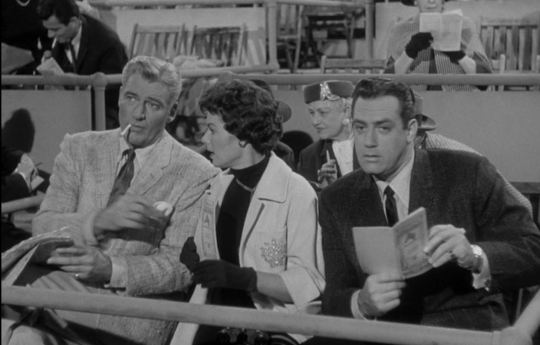



PERRY: [Pulls out three tickets] I thought we all might go to the track today. I'm curious to see how Tic Barton rides Bright Magic.
DELLA: What seats do you have?
PERRY: Section E.
DELLA: [Pulls out three tickets with a triumphant smile] It just so happens that I have three seats here, section B.
PERRY: [Grabs Della's tickets] Well, we'll use yours. They're better.
DELLA: All right.
PAUL: Hold it. We'll use mine. [Pulls three tickets from his breast pocket] Box seats on the finish line.
Paul, Della, and Perry go to the races after they all individually thought they'd surprise one another with tickets.
#&. paul visage#&. della visage#&. perry visage#paul drake#william hopper#della street#barbara hale#perry mason#raymond burr#tcot jilted jockey#them <3
10 notes
·
View notes
Text




Finally giffed this insane scene that apparently only exists to remind all of us how incredibly fit and sexy William Hopper is and boy oh boy where do I even start…
Shoulders 🤤
Chest 👀
Legs 🥵
THIGHS 🥵😳
Chest hair 🫠
His tight little butt 😤
The patch of hair at the back of his neck 🫣
FRECKLES 🥴
His TUMMY 👅👅👅
The fact that those itty bitty white shorts are hiding NOTHING 😫😩🫠🫠🫠🫠🫠🫠🫠🫠
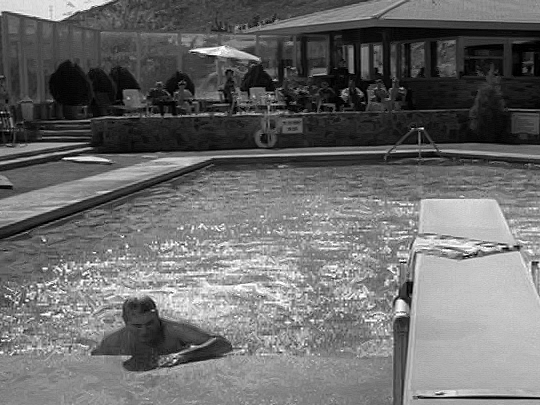
#&. paul visage#op you have giffed the scene that lives in my head for eternity#bill 'i'm a non-throbbing actor' hopper#bill 'i'm just some guy with premature grey hair' hopper#you were so talented and so gorgeous and by all accounts i've read you had a gentle heart 💜 i just wish you knew it#like Bill!!!! BILL!!!!!!! you gorgeous gorgeous man!#chest hair!!! the little back of the neck hair!! SHOULDERS!!!!!!!!!!! TUMMY!!!!!!!!! LEGS!!!!!#how did he get to wear the thinnest little white swim trunks 🫣#his swimming agility!!! he's a powerhouse! he definitely has that agility in the water from his days as a frogman#having to be in the water for hours at a time#he's got those swimmer's shoulders for sure!#and same op going back in time to fuck that old man (and also count those freckles)#bill's chest was meant for you to lay your head down on it 😭#anyway... losing my mind
13 notes
·
View notes
Text
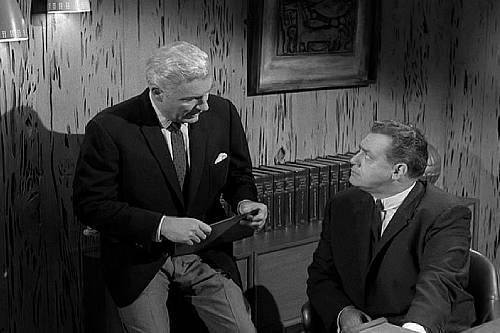
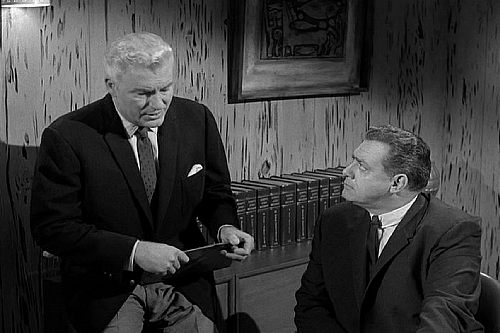
sit closer guys
#&. paul visage#&. perry visage#the way they constantly have to be together likethis#they cannot be separated!#i really do love how they all gravitate to each other <3
8 notes
·
View notes
Text

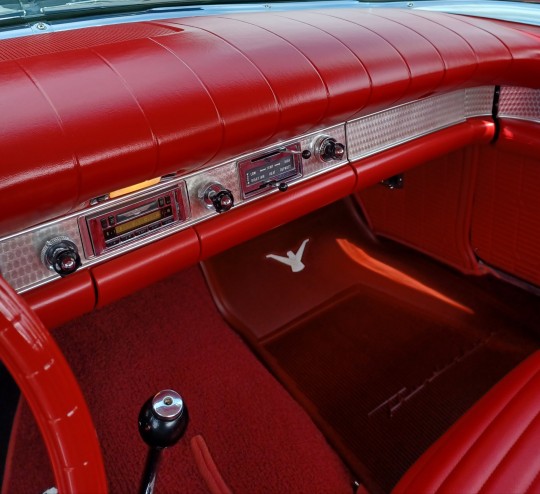
Hello from my seat in a 1957 Thunderbird! This baby bird was a delight- like Paul’s '57 T-bird with its original black exterior paint.
#&. case closed / out of character#william hopper is taller than me by an inch and i can attest you are packing yourself in there (especially with the hardtop on)#just one year later and the '58 square birds will have more room - and a 4 seater no less!#nevertheless these baby birds are my favorite#car show season has only just begun and we're starting off on a good note getting to see this thunderbird!
5 notes
·
View notes
Text
PERRY: Did you make any effort to determine the accuracy or inaccuracy of his statement?
PAUL: Yes, I did.
PERRY: What did you do?
PAUL: Immediately after I called the police, I went out to check the defendant's car. I felt the hood on the outside, lifted it, sniffed the air in the engine compartment, felt the radiator, the cylinder head, and the exhaust manifold.
PERRY: At the time of this examination of the defendant's car, how long would you say the motor had been idle?
PAUL: Eight or nine minutes, not over at the outside or under six.
PERRY: Thank you, Mr. Drake. That's all.
I love this bit that showcases Paul's familiarity around cars. We all know he loves his cars in general (he's a Thunderbird and Corvette guy!) and likes to keep on top of driving the latest cars. But he doesn't just appreciate the aesthetic appeal to cars; he knows how they run. He's also the better driver of the trio!
I quite like the idea of Paul being a bit of a motor head-- tinkering under the hood in the evenings, babying his cars a bit (you know he's keeping those cars as shiny and as put together as he looks in his fashionable attire), going cruising on date nights, and taking care of minor fixes, as needed. Since William Hopper sold cars for several years, it's another way to pay homage to him through Paul's character.
And in general, I do think Paul likes to tinker with a variety of things, not just cars! He canonically creates tools and devices to use for detective work, which showcases his resourcefulness as well as his need to keep his hands busy (see also Paul's hobby for carving driftwood). Keeping his hands busy is a way to settle and clear his mind as much as it is a sign of how his brain works. He's got a very analytical way of thinking as a detective and he pieces things together in his mind to create a better picture and understanding of situations. And I think part of that thought process aligns well with working with your hands, especially when doing tasks that pick things apart or put things together to create something.
6 notes
·
View notes